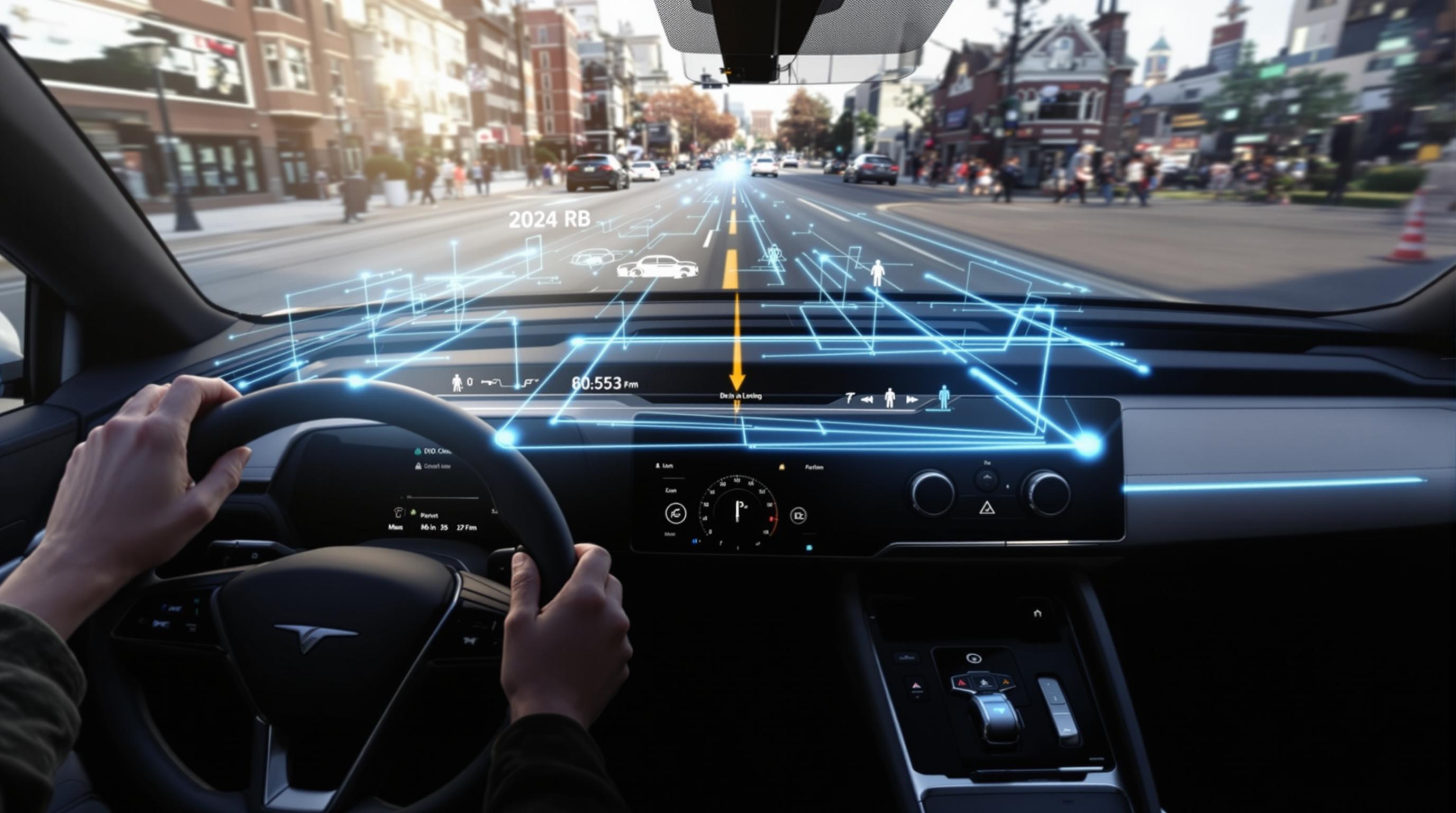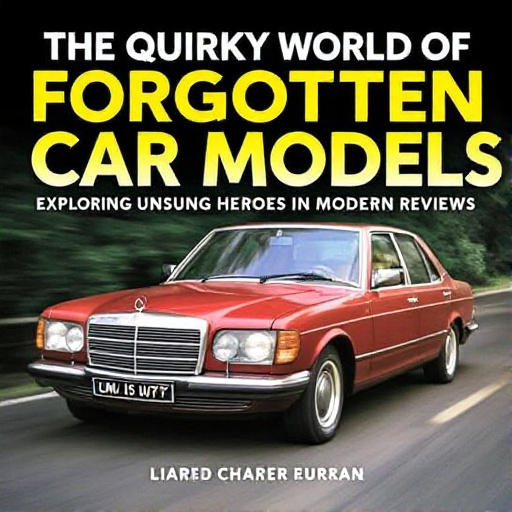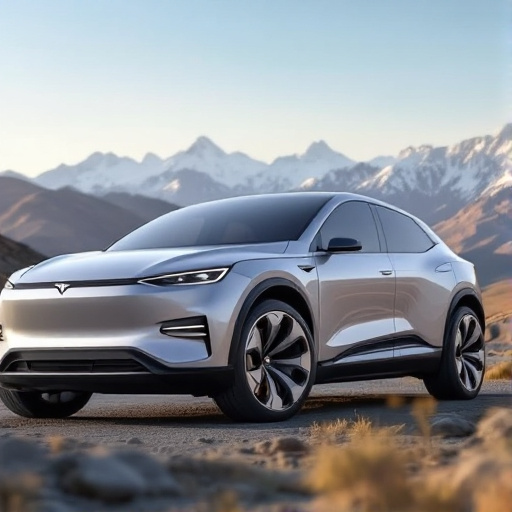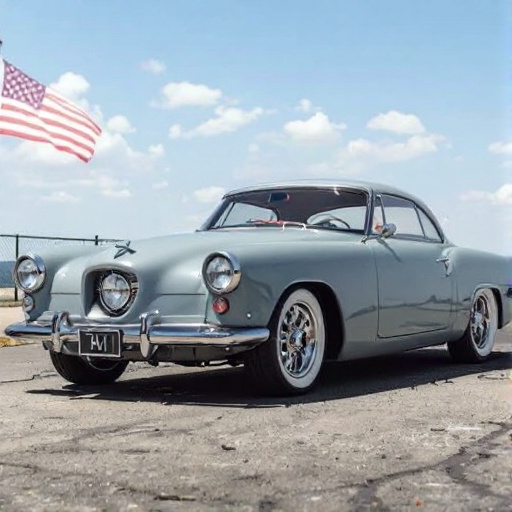Related Articles
- Charged Up! How Electric Vehicles are Reshaping Urban Wildlife Habitats and Biodiversity
- Navigating the Used Car Market: Uncovering the Secrets of 'As-Is' Sales for Savvy Buyers
- The Rise of Electric Car Pop-up Shops: A New Frontier for Urban Retail Experiences
- The Forgotten Art of DIY Car Maintenance: Rediscovering Skills in a Tech-Driven World
- Electric vs. Vintage: The Battle for Enthusiasts' Hearts in the Age of Latest Car Models
- The Rise of the 'Car Review Influencer': How Social Media is Shaping Auto Buying Decisions
The Rise of the 'Car Review Influencer': How Social Media is Shaping Auto Buying Decisions
The Rise of the 'Car Review Influencer': How Social Media is Shaping Auto Buying Decisions
The rise of car review influencers has dramatically reshaped how consumers navigate the auto-buying experience, with social media emerging as a powerful tool in the decision-making process. As the landscape of digital content continues to evolve, these influencers have established a personal connection with their followers, transforming the traditional car review into a dynamic mix of entertainment, information, and persuasion.
The New Age of Car Buying
Once upon a time, the car-buying process relied heavily on traditional marketing tactics, such as print magazines and TV commercials. Fast forward to today, and the tables have turned; consumers are now finding valuable insights online, thanks to the growing influence of car review influencers on platforms like Instagram, YouTube, and TikTok.
Who Are the Car Review Influencers?
Car review influencers are individuals who have built a following by sharing their automotive expertise, personal experiences, and unique opinions about vehicles. With a diverse range of tones ranging from comedic to analytical, these influencers cater to a wide demographic.
According to a study by the Pew Research Center, 72% of adults aged 18-29 use social media to research products, and the automotive sector is no exception. This statistic clearly illustrates the shift from traditional advertising to influencer marketing in the automotive industry.
Story Time: The Journey of a First-Time Car Buyer
Let’s kick things off with a story. Meet Sarah, a freshly minted college graduate who’s keen on buying her first car. Leaving behind the trusty old Honda Civic of her parents, Sarah took to her smartphone.
Hours spent scrolling through TikTok and YouTube led her to influencers like Doug DeMuro and Tavarish, who not only reviewed cars but also made the entire process entertaining. Sarah found herself laughing while learning the ins and outs of different models, something she never imagined as part of her car-buying decision.
Why Social Media Influencers Matter
According to a survey conducted by Deloitte, 35% of consumers claim that social media influences their car-buying decisions. People trust their favorite influencers more than OEM ads; influencers present practical yet engaging insights. A charismatic influencer detailing the features of the latest Tesla while making jokes about its ‘insane mode’ is far more captivating than a static commercial.
The Power of Visuals
In the world of automotive review, visuals are everything. Car enthusiasts often seek clarity in the product they’re considering, and car review influencers excel at providing this through high-definition footage and personal commentary. Consider the way car influencers utilize scenic backdrops and unique driving experiences to showcase a vehicle’s capabilities; it brings the car to life in a way traditional media struggles to do.
Bringing Humor into the Mix
Who's got time for boring car specs, right? Enter humor into the automotive scene. Influencers like TheStraightPipes inject comedic elements into their reviews that resonate well with their audience.
Imagine a car review riddled with dad jokes about trunk space and “she’s nice” when talking about the vehicle’s exterior. Their relatable approach builds loyalty and keeps followers coming back for more content.
The Role of Authenticity
Authenticity is a crucial ingredient in the recipe of successful car review influencers. The 2021 Edelman Trust Barometer Report found that 61% of consumers trust influencers more than they trust brands themselves. This number reveals the gravity of influencer credibility in the eyes of potential buyers.
When influencers candidly discuss their experience, whether it’s a faulty feature or praising customer service, their followers feel they’re getting the genuine scoop. This authentic connection can even influence the reputation of the car manufacturers involved.
The Data-Driven Approach
Let’s talk data. The automotive industry is rich with metrics, and influencers are increasingly utilizing analytics to tailor their content. Influencers analyze viewer engagement, preferences, and even common questions they receive, adapting their reviews accordingly.
According to a Social Media Examiner report, video content is 49% more likely to drive engagement than traditional forms of content. Keeping this in mind, many car review influencers have mastered the art of integrating graphics, charts, and performance stats seamlessly into their reviews.
The Risks of Influencer Dependency
However, relying on influencers isn't without its pitfalls. The slick production quality and eye-catching narratives can potentially mislead consumers about the vehicle's real-life performance or reliability issues.
For example, a popular influencer might showcase a car’s zero-to-sixty time while ignoring long-term maintenance costs or other crucial factors. It’s vital for consumers to digest information from multiple sources, ensuring a well-rounded understanding before making a purchase.
Brands Collaborating with Influencers
As car review influencers gain momentum, manufacturers are seeing the opportunity and adapting their marketing strategies. Brands are now investing heavily in partnerships with influencers to reach a broader audience and enhance credibility.
Take Ford’s collab with the automotive influencer, ChrisFix, for instance; this partnership resulted in a staged restoration project that attracted millions of views. Many manufacturers recognize that influencer content garners higher engagement than traditional ads, thereby attempting to blend the two worlds into a cohesive marketing strategy.
TikTok: The New Frontier
Platforms like TikTok are emerging as new frontiers for car reviews. With bite-sized video content going viral regularly, influencers are capitalizing on this trend, offering quick yet informative snippets of automotive reviews.
For instance, influencers such as @carwowuk leverage TikTok to create engaging comparisons between models within mere minutes. The quick pace captures the attention of younger audiences who may not have the time to watch lengthy YouTube videos.
For the Youth: Are You Listening?
If you’re 16 and pondering your first car purchase, here’s some advice: don’t overlook those influencers. They often reflect your generation’s interests and concerns regarding vehicles. Remember, while their opinions carry weight, always cross-reference with other sources to get a comprehensive picture.
Staying Informed in a Changing Landscape
As the car industry continues to evolve, so does the role of social media in the car-buying journey. Today’s consumers need to stay informed, keeping an eye on reviews, trends, and also practical information regarding features, maintenance, and resale values.
For instance, the National Automobile Dealers Association (NADA) recommends regularly checking different media platforms to get a balanced perspective on potential car choices. By using this approach, buyers can make informed decisions rather than impulsive ones driven by marketing hype.
The Fulfillment of Community
Another underpinning factor is community. Car review influencers often cultivate a sense of belonging among followers. Sharing their experiences, concerns, and discussions about vehicles creates a space where potential buyers feel less intimidated.
Online communities or subreddits focused on cars offer platforms for engagement, where individuals can ask questions and receive advice ranging from performance tips to the best financing options. It’s social media empowering the automotive community.
Preparing for Tomorrow's Buyers
As we look to the future, the car review influencer phenomenon shows no signs of slowing down. Brands must prepare for increased competition for those coveted online spaces. The key is to balance engaging content with authentic information that carries weight within the automotive community.
Conclusion: Adapt or Fall Behind
Whether you’re a seasoned auto aficionado or a novice looking to buy your first car, the influence of car review influencers is undeniable. Embracing this modern shift in information dissemination could be the difference between a satisfying purchase and buyer’s remorse.
Ultimately, as these influencers grow in popularity and credibility, consumers must remain vigilant, ensuring they harness the authentic insights available from social media alongside traditional research methods. The power of the influencer is formidable, and navigating this new landscape responsibly will undoubtedly shape the future of automotive buying decisions.




